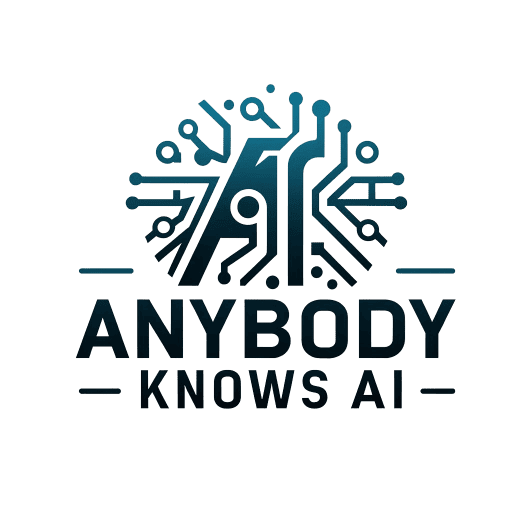Navigating the best online courses for learning machine learning and AI can be overwhelming. This guide strips away the complexities of delivering a straight-to-the-point list of top-rated courses tailored to diverse skill levels. Expect practical details, user reviews, and essential insights that will direct you towards making an informed choice for your journey into AI.
Key Takeaways
- The best online machine-learning courses offer foundational knowledge and practical skills for beginners and comprehensive, cutting-edge techniques for advanced learners.
- Popular programming languages for AI and machine learning include Python, Java, C++, JavaScript, Julia, and LISP, with Python being the most recommended due to its vast library ecosystem.
- Hands-on projects and real-world applications are critical in machine learning education, enhancing understanding and employability through practical experience.
Top Machine Learning Courses for Beginners

Getting started in machine learning can be daunting, given the broad selection of online courses. Fear not; we’ve sifted through them to bring you the best. These beginner-friendly machine learning courses emphasize understanding essential algorithms and how to implement them using programming languages.
They are designed to equip you with a solid computer science, data science, and AI foundation, paving the way to become a proficient machine learning engineer.
The Machine Learning Crash Course by Google AI is particularly noteworthy. This course covers fundamental machine learning algorithms and rapid problem-solving approaches using Python and TensorFlow.
Many beginner machine learning courses opt for Python as the primary programming language due to its numerous advantages. It’s versatile, powerful, and has a vast library ecosystem, making implementing machine learning algorithms a breeze.
The Machine Learning Crash Course also utilizes interactive tools like Google Colab, making it suitable for those with some programming experience.
Course Descriptions
Andrew Ng, a prominent figure in the machine learning field, instructs the Machine Learning Crash Course by Google AI. Ng co-founded Google Brain and Coursera, contributing to his favorable reviews among learners.
The course provides practical algorithm advice and features interactive Jupyter notebooks to help you understand new concepts. The free course makes it accessible to learners from all walks of life.
Fast.ai offers another noteworthy course. This comprehensive machine learning course is free and makes learning fun and accessible with:
- Video lectures
- Homework assignments
- Extensive notes
- A discussion board
The course content is engaging and interactive, making the learning experience enjoyable and effective. Whether you’re a bachelor’s degree student or a professional looking to switch career paths, these courses offer the flexibility to learn at your own pace while gaining in-depth knowledge of machine learning.
Course Ratings and Reviews
User ratings and reviews are a valuable resource when selecting an online course. They offer insights into the strengths and weaknesses of a course from the perspective of actual learners. For machine learning courses, those that focus on applying machine learning algorithms, provide mathematical explanations, and offer hands-on programming assignments tend to receive positive ratings and reviews.
Learners often highly rate and recommend self-paced, frequently available courses with clear lectures and engaging instructors. The Machine Learning Crash Course by Google AI and Fast.ai’s implementation-focused course both receive high marks for their practical application projects, intuitive explanations, and practical algorithm advice.
Advanced Machine Learning Courses for Professionals

After mastering the basics, you may wish to delve further into the machine-learning realm. Advanced machine learning courses for professionals are designed to cover recent progress in the field, enhancing your research and development skills.
The courses we recommend in this section are intended to provide a thorough understanding of cutting-edge machine learning techniques, deep learning, and AI.
These courses are not for the faint-hearted, as they delve into complex topics like:
- nonparametric and parametric learning
- graphical models
- ensemble methods
- reinforcement learning
But if you’re up for the challenge, these courses can propel you to the forefront of the machine learning field, opening up exciting career paths and opportunities.
Course Descriptions
Johns Hopkins University offers an advanced machine learning course that covers a wide range of topics, including:
- Nonparametric and parametric learning
- Graphical models
- Ensemble methods
- Reinforcement learning The course also dives into multi-class classification with:
- Neural networks
- Decision trees
- Tree ensemble methods
Enrolling in this advanced machine learning course requires a solid foundation in Linear Algebra, Calculus, Probability, and programming skills.
The course is designed to be completed asynchronously online over 8-10 months. During this period, learners will undertake projects that teach a computer to read, see, and play.
The course material is reported to offer clear and comprehensive explanations that simplify complex mathematical concepts alongside valuable practice classes.
Course Ratings and Reviews
User ratings are an essential measure of a course’s quality, as they reflect the opinions and experiences of actual learners. The advanced machine learning and AI courses have received high average ratings, generally between 4.5 and 5 stars, indicating strong approval from the course participants.
Positive reviews of the course usually cite the following standout features:
- Comprehensive content
- Clear explanations
- Practical assignments
- Collaborative community
- Responsive instructors
Critical reviews are minimal, but when present, they typically point to a desire for more interactive components or real-world project opportunities.
Top Artificial Intelligence (AI) Courses Online

AI is a transformative technology that is reshaping the world as we know it. AI is everywhere, from virtual assistants like Siri to advanced recommendation systems used by Netflix. If you want to dive into this exciting field, we’ve curated a list of top-rated AI courses online. These courses offer comprehensive coverage of AI technologies, including:
- Deep learning
- Machine learning
- Natural language processing
- Computer vision
- Reinforcement learning
Business leaders and managers can also benefit from learning AI. There are targeted courses that help business professionals understand how to utilize AI in their domains beyond existing technologies like ChatGPT.
LinkedIn’s ‘Building Generative AI Skills for Business Professionals’ is an excellent example. It trains professionals in using generative AI for creative tasks like content writing, research, and crafting AI-generated artwork.
Course Descriptions
The ‘AI for Everyone’ course on Coursera is popular among learners. Instructed by the renowned expert Andrew Ng, the course offers a broad introduction to AI, machine learning, and deep learning. The ‘AI for Business Specialization’ course provided by the University of Pennsylvania on Coursera is another excellent choice.
This course teaches AI fundamentals, applications in various business sectors, and AI strategy and governance, highlighting real-world applications. Numerous artificial intelligence courses are available online for those interested in exploring more options.
The University of Helsinki offers a unique course called ‘Ethics of AI.’ This course focuses on AI ethics, accountability, transparency, and human rights and includes practical exercises.
Google’s ‘Generative AI Learning Path’ course delves into the intricacies of generative AI and large language models, focusing on their ethical and responsible use.
Course Ratings and Reviews
Courses on Udemy receive ratings as high as 4.8 out of 5, indicating a high level of learner satisfaction. Learners appreciate the effective explanations and hands-on examples provided, particularly for courses focusing on applied AI techniques.
The course ‘AI for Everyone’ by DeepLearning.AI is particularly popular, amassing over a million enrollments and more than 40,000 positive reviews. These ratings and reviews are a testament to the quality of the AI courses highlighted here, and we encourage you to check them out for yourself.
Essential Skills for Machine Learning and AI Engineers

Understanding the fundamental concepts of machine learning and AI is only the starting point. To excel in their field, a machine learning or AI engineer must hone key skills, such as proficiency in programming languages, data analysis techniques, and specialized knowledge in areas like computer vision and natural language processing.
Choosing the appropriate programming language is crucial for an AI project. Python, for instance, is recommended for AI development due to its adaptability and wide support for data analysis. Proficiency in a language like R is also beneficial, especially for data wrangling and package development tasks.
A solid understanding of programming and linear algebra basics, such as vectors and matrices, is essential for data analysis in AI.
Programming Languages
Several programming languages are particularly prominent in AI and machine learning. Some of the most widely used and desired languages for artificial intelligence are:
- Python
- Java
- C++
- JavaScript
- Julia
- LISP
Python is recommended for AI development as it’s adaptable and has a vast library ecosystem, making implementing machine learning algorithms a breeze.
Java’s simplicity, cross-platform capabilities, and memory management make it a favorite for mobile applications. C++ is preferred in high-pressure situations, such as machine learning and neural network applications. JavaScript enables AI implementations in the browser, thanks to advanced tools like TensorFlow.js.
Julia is emerging as a significant language for AI due to its parallel computing capabilities and utility in scientific computing and data analysis. LISP, though relatively old, still holds its place in AI for its dynamic nature and capacity for customized programming solutions.
Data Analysis Techniques
Machine learning and AI engineers should also focus on data analysis techniques. Exploratory Data Analysis (EDA), Data Visualization, and Feature Engineering are essential for understanding and interpreting data.
EDA is crucial for summarizing the main characteristics of data to understand their behavior and to ensure the use of appropriate models. Data Visualization uses graphical representations of data to reveal underlying structures, trends, and relationships that may not be evident from raw data alone.
Feature Engineering improves model accuracy by creating new features or modifying existing ones to increase machine learning algorithms’ predictive power.
Computer Vision and Natural Language Processing
Computer Vision and Natural Language Processing (NLP) are specialized skills becoming increasingly important in AI and machine learning. Computer Vision is the technology that allows machines to see and interpret visual data, while NLP is the technology that enables computers to understand and process human language.
NLP techniques are pivotal in converting speech into text, which is a critical functionality for building applications in sectors like healthcare and virtual assistance. Computer Vision is also exciting, with applications ranging from enhancing smartphone security to assisting law enforcement.
Developing these skills in software engineering can open up a wealth of opportunities for budding AI engineers.
Hands-On Learning: Projects and Real-World Applications

While theory is important, practical experience is irreplaceable. Engaging in machine learning projects provides valuable hands-on experience by allowing learners to:
- Apply theoretical concepts to tangible problems
- Gain experience with real-world datasets
- Learn how to preprocess and clean data
- Implement and evaluate different machine learning algorithms
- Fine-tune models and optimize performance
- Interpret and communicate results
Advanced ML courses include hands-on labs and encourage using open-source ML libraries for practical experience.
Maintaining a side project during machine learning studies can boost your employability, allowing you to experiment with various techniques and gain a more comprehensive understanding of the field.
Whether auditing a free course or enrolling in a paid program, look for courses that offer opportunities for hands-on learning.
Project Ideas
If you’re a beginner looking for a way to get your hands dirty, consider projects like predicting taxi fares or classifying song genres. These projects will help you learn essential data cleaning, visualization, and basic model training skills.
For intermediate-level projects, consider data augmentation, natural language processing (NLP), and time series forecasting using structured and unstructured data. If you’re advanced, consider building and training sophisticated deep learning models, fine-tuning language models, or exploring reinforcement learning with unstructured datasets.
Remember, compiling a machine learning project portfolio demonstrates your proficiency across different programming languages and frameworks and the knowledge of end-to-end system implementation, often reflecting real-world scenario applications.
Real-World Applications
The scope of machine learning and AI applications in the real world is extensive and continually expanding. Machine learning significantly improves recommendation systems, as evidenced by platforms like Spotify and Netflix, which suggest music and TV shows tailored to user preferences.
Social media utilizes machine learning to enhance user experience by suggesting connections deduced from analysis of contacts, user interactions, and existing networks.
Machine learning also plays a crucial role in behavioral analysis, as it can be leveraged to track user behavior, recognize patterns, and predict preferences, which is vital for personalization and targeted marketing.
The advancement of self-driving car technologies is largely due to reinforcement learning, a branch of machine learning that helps vehicles navigate and react to dynamic environmental inputs.
A well-designed machine learning model can help in understanding these real-world applications, allowing you to see the bigger picture and understand the potential impact of your work.
Online Learning Platforms: Pros and Cons
A multitude of machine learning and AI courses are available on online learning platforms such as:
- Coursera
- EdX
- Udemy
- Udacity
- DataCamp
These platforms offer a range of modules from beginner to advanced levels, catering to students eager to become machine learning engineers. While many platforms provide a strong foundation in machine learning theory and machine learning models, they may not always include practical, hands-on project work.
Each platform comes with its own set of advantages and drawbacks. For instance, Coursera partners with prestigious universities to develop courses, enabling students to earn certificates from these institutions and adding academic credibility to the course completions.
On the other hand, some learners may prefer platforms like Udemy, which offer courses taught by industry professionals and often focus on practical skills and real-world applications.
Platform Features
Each platform provides unique features. Here are some key features of Coursera:
- Courses typically span from three to nine weeks
- Video lectures
- Quizzes
- Peer-graded assignments
- Flexibility for learners to adjust quizzes and assignment submissions according to their schedules
- Specialized programs like Coursera for Business and Coursera for Governments and Nonprofits
On the other hand, EdX courses offer a structured weekly sequence of videos combined with interactive learning exercises. The cost can vary on these platforms, with some courses, such as the Machine Learning Crash Course by Google AI, being offered for free.
These features allow learners to choose the platform best suits their learning style and budget.
User Experiences
Users have varied experiences on these platforms. Many learners appreciate courses that utilize intuitive teaching methods and clearly explain complex algorithms. Coursera users benefit from the platform’s structured learning approach and employment outcomes, although some may seek additional hands-on experiences.
EdX courses can be accessed through various platforms, including Android and iOS apps, as well as Apple TV, adding convenience for users. User experiences are a critical determinant of the quality of an online course.
Therefore, it’s essential to consider these when deciding which platform to choose for your learning journey.
Based on current research, here is a comprehensive table featuring some of the best online courses for learning machine learning and AI in 2024. These courses vary in duration, cost, and prerequisites, catering to different learning needs and career aspirations.
| Course Name | Provider | Duration | Cost | Certificate | Prerequisites | Special Features |
|---|---|---|---|---|---|---|
| AI for Everyone | Coursera | 10 hours | Free | No | None | Ideal for non-technical professionals; led by Andrew Ng |
| Machine Learning with Python | Coursera | Self-paced | Free to audit | Yes | Basic Python knowledge | Focus on practical exercises and real-life applications |
| Deep Learning Specialization | Coursera | 5 months | $49/month | Yes | Basic understanding of AI and ML | Comprehensive deep learning coverage |
| Machine Learning for Everybody | FreeCodeCamp | 4 hours | Free | No | None | Beginner-friendly, available on YouTube |
| Professional Certificate in AI and ML | Simplilearn | 11 months | $2,999 | Yes | Basic programming and math knowledge | Collaboration with IBM, hands-on projects |
| AWS Generative AI Developer Kit | AWS Skill Builder | 16.5 hours | $29/month | Yes | Experience in the AWS ecosystem is recommended | Practical, with hands-on labs and challenges |
| Machine Learning — EdX | EdX | Self-paced | Free to audit, $300 for certificate | Yes | Strong background in math and programming | In-depth theoretical and practical ML training |
| Machine Learning A-Z™: Hands-On Python & R in Data Science | Udemy | 44 hours | $119.99 | Yes | High school math | Comprehensive, practical with Python and R code templates |
| Stanford Artificial Intelligence Professional Program | Stanford Online | Varies | $1,750 per course | Yes | Advanced coding and math skills | High academic rigor, real-world AI model training |
Each course offers unique benefits, from beginner-friendly introductions to in-depth, specialized learning paths. Whether you want to start with the basics of machine learning or advance to building complex AI models, these courses provide diverse options to suit various educational needs and professional goals.
Summary
As we wrap up, it’s clear that there’s no shortage of high-quality online courses for learning machine learning and AI. Whether you are a beginner or an experienced professional, online learning platforms offer many resources to help you gain the necessary skills.
These courses provide comprehensive field coverage, from understanding algorithms and programming languages to diving into complex topics like computer vision and natural language processing.
Investing in your education and skills is a worthwhile endeavor. Not only will it open up exciting career opportunities, but it will also equip you with the tools to contribute to advancements in technology.
The world is becoming increasingly data-driven, and machine learning and AI are at the forefront of this revolution. Now is the perfect time to dive in and start learning!
Frequently Asked Questions
Are there any free online courses for learning machine learning and AI?
Yes, free online courses, such as the Machine Learning Crash Course by Google AI, are available for learning machine learning and AI.
Do I need a strong mathematical background to learn machine learning and AI?
A strong mathematical background in linear algebra, calculus, and probability is often required to learn machine learning and AI. Some courses may also require programming skills.
How can I gain hands-on experience in machine learning?
To gain hands-on experience in machine learning, consider engaging in machine learning projects and taking online courses with labs and open-source ML libraries for practical experience. This can provide valuable practical knowledge.
What programming language should I learn for AI and machine learning?
You should learn Python for AI and machine learning due to its adaptability and strong support for data analysis. Other options include Java, C++, JavaScript, Julia, and LISP.
How do online learning platforms differ?
Online learning platforms differ in features, accreditation, instructors, cost, course structure, and flexibility. These variations are based on partnerships with universities, instructor backgrounds, and platform-specific offerings.







